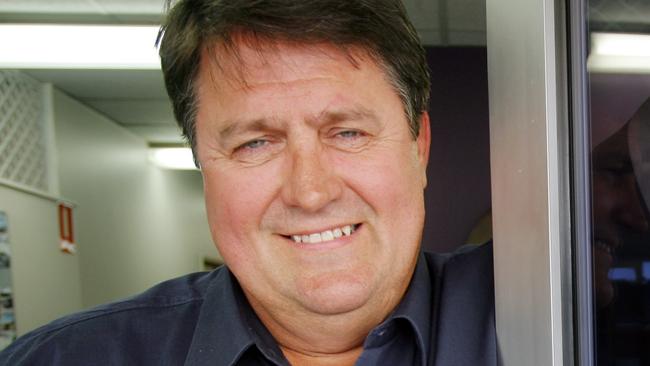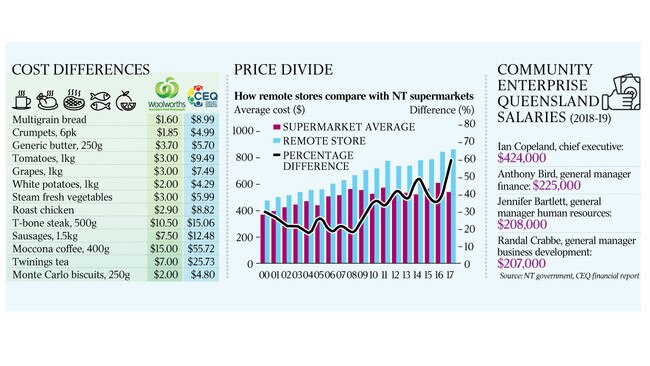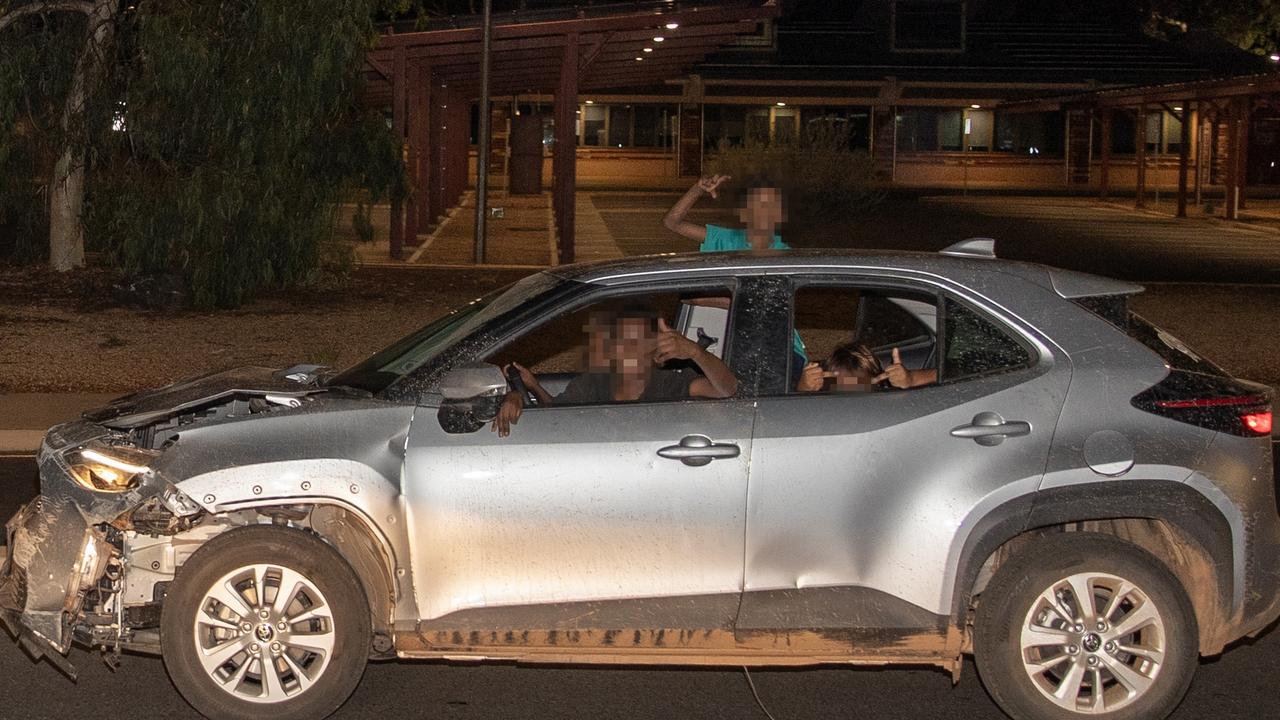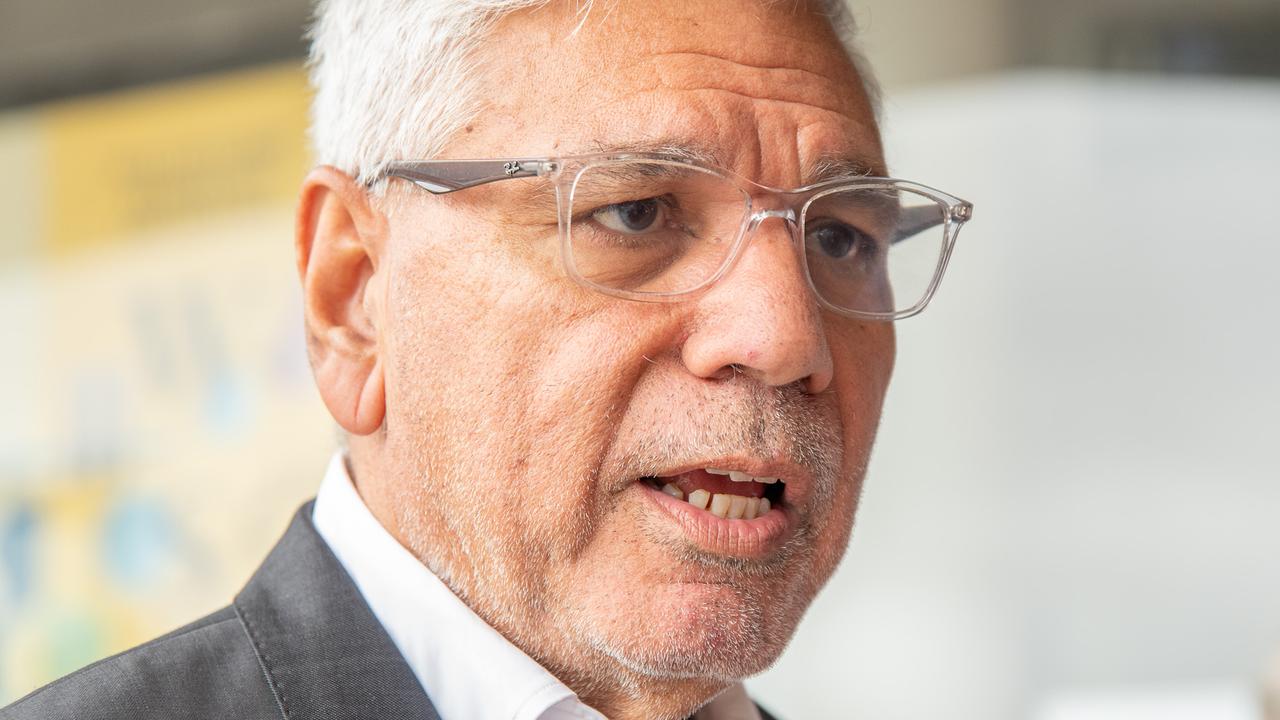$56 coffee: Cape York food prices a ‘disgrace’
A retailer has allegedly forced Torres Strait Islanders to pay much as five times mainstream supermarket prices for staple items.

A monopolistic government retailer where top executives earn hundreds of thousands of dollars is forcing impoverished Torres Strait Islanders to pay as much as five times supermarket prices for staples such as bread, chicken and instant coffee.
Community Enterprise Queensland, a statutory body of the state government, sells multigrain loaves available for $1.60 at Woolworths in regional Queensland for $8.99 on Thursday Island, according to a comparison conducted by the local council.
It sells Moccona coffee usually costing about $15 for $55.72 to Islanders. Twinings tea priced at $7 in supermarkets goes for $25.73 in the Torres Strait. Tomatoes sell for $9.49/kg compared with $3/kg at Woolies and roast chicken for $8.82/kg against a mainstream price of $2.90/kg.

The shocking revelations come from a submission prepared by the Torres Shire Council for a federal parliamentary inquiry. CEQ did not respond to The Australian’s requests for comments.
Torres Shire chief executive Dalassa Yorkston told parliament's inquiry into food pricing and food security in remote indigenous communities that reports of CEQ stores selling repackaged rice in ziplock bags and “very out of date” items were “a regular occurrence”.
“So far as food security, food supply and food pricing are concerned, it is surely a disgrace that this country’s ancient peoples, the first Australians, are required to live like this,” she wrote. “The mix of high cost of food and poverty are incubators for petty offending … and are direct contributors to poor health and the continued blight of short life expectancy.”
CEQ’s pricing policy speaks of helping people on low incomes to maintain good diets and claims the organisation only promotes healthy items through its advertising. Ms Yorkston said those assertions were “disingenuous and simply untrue”.
According to financial reports, CEQ’s chief executive Ian Copeland earned $424,000 in 2018–19.
Three executives — finance manager Anthony Bird, human resources manager Jennifer Bartlett and business development manager Randal Crabbe — each earned more than $200,000.
The Australian reported on Tuesday that another company, Outback Stores, was shipping large quantities of food remote indigenous communities couldn’t consume to outlets in those towns.
The practice, which analysis concluded could be wasting $550,000 in food every year, was likely driving up prices for other produce, which was subsidising the spoiled fruit and vegetables.
In the three months to March 31, 2018, The Australian revealed, one store in a town of 300 people was shipped 100kg of watermelons despite ordering 8kg.
Outback, a federal agency, was founded in 2006 to address market failures that led to an undersupply of healthy produce in remote indigenous communities.
CEQ’s submission to the inquiry, being conducted by a House of Representatives committee, argued “freight and other economic and social initiatives” needed to be factored in to price comparisons.
“CEQ undertakes benchmarking against both rural, regional and major retailers,” Mr Copeland said. “CEQ cross-subsidises fresh and healthy food with other foods that are not as nutritious.”
He said his organisation faced challenges such as needing helicopters “to continue to maintain a level of service” and gave the example of a recent $6000 return trip to “deliver a relief manager to site”.
“CEQ currently prices to earn a social return in the order of 1.5–2.5 per cent,” he wrote.
“This level of return allows CEQ to manage its balance sheet and fund capital requirements over a 10-year term.”
Cape York Partnership chief executive Fiona Jose, however, told the inquiry that in stores across Cape York it was “the norm for average prices to be two to three times that of the nearest regional centre … fresh food is generally of much lower quality”.
“Despite the monopoly power of local stores and the consistently very high prices, there is limited accountability to local communities for this situation,” Ms Jose’s submission said.
“While this lack of accountability might be expected for privately run stores, it should not be the case for government-controlled stores or the island and Cape stores that operate under a long-term lease from local indigenous trustees.”
Ms Jose specifically named CEQ and said the growing interest in a new local food box scheme showed there was a “large unmet demand by families for healthy, affordable food that the existing stores’ system has failed or is perhaps incapable of supplying”.
Sea Swift, one freight company that services the Torres Strait Islands, disputes its prices are to blame for high retail costs.
“The Sea Swift freight cost represents 4.3 per cent of the Thursday Island shopping basket total retail price,” the company said.
“The additional uplift from Cairns prices would include other factors outside Sea Swift control.”





